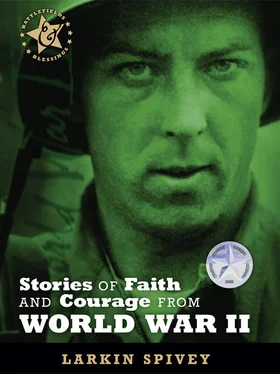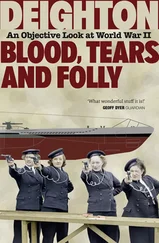Unknown to the Allies, however, the German main attack came as Army Group A, under Gen. Col. Gerd von Rundstedt, penetrated the supposedly impenetrable Ardennes Forest, crossed the River Meuse on May 1213, and broke into open country. This force of more than eighteen hundred panzer tanks and three hundred Stuka dive-bombers knifed through the French 2 ndand 9 thArmies, reaching the English Channel on May 19. This bewildering success left large French units and the entire British Expeditionary Force cut off and surrounded, with their backs to the sea. This vast pocket centered more or less on the little port town of Dunkirk.
As the German advance from north and south rapidly reduced the size of the Allied pocket, Lt. Gen. Allan Brooke, commander of the British II Corps, succinctly summed up the situation on May 23: “Nothing but a miracle can save the BEF.” 2On May 24 the first installment on that miracle came. Hitler ordered his panzer divisions to halt in place and to regroup. His generals persuaded him that the tanks were needed elsewhere and that the Luftwaffe and infantry units could finish the job of annihilating the remaining Allied forces in the pocket.
To meet this crisis Great Britain mustered every seagoing vessel that could reach Dunkirk, assembling an armada of ships, ferries, tenders, yachts, and small boats to rescue its army. Between May 26 and June 4, more than three hundred thirty-eight thousand British and French troops were rescued despite bitter opposition from German aircraft, artillery, infantry, and patrol boats. Even though this was in effect a “retreat” from France, spirits soared in England at the sight of these returning troops. The new prime minister, Winston Churchill, called the dramatic rescue a “miracle of deliverance.” 3On June 22 France fell to the advancing German forces, but, with a large portion of her army on home soil, Great Britain survived to fight on.
The fight did continue, but the scene shifted to a new battlefield: the airspace over England. By now Britain stood alone, and only the Royal Air Force (RAF) stood between Germany and complete domination of the continent. The Battle of Britain began in late June 1940. Aerial combat was unremitting as German bombers raided British airfields day after day, with the Spitfires and Hurricanes of the RAF rising to meet them.
Encountering unexpected resistance and losses, the Germans changed strategy in early September. Turning away from Fighter Command bases, they focused instead on England’s cities. These attacks became known as the ‘Blitz,’ and would continue for much of the war. Although many cities were devastated, these attacks did not help the Luftwaffe achieve air superiority. The RAF fought on, with increasing effectiveness. On September 15, two massive raids were turned back and fifty-six German aircraft shot down during the Luftwaffe’s worst day. Two days later, Hitler canceled plans for the invasion of Great Britain.
Myron Maycock was a British soldier who spent much of World War II as a prisoner of war. During his many trials he was comforted by a short poem:
I see not a step before me
As I tread on another year,
But I’ve left the past in God’s keeping
The future his mercy shall clear,
And what looks dark in the distance
May brighten as I draw near. 4
“Through the difficult days of captivity this verse was constantly before me, suggesting, as it did, a brighter path in the distance, to which the course of time with faith must ultimately lead me,” Maycock said. “The full beauty of these words came to me at the close of my last hour of freedom.” 5
This poem is appropriate for any day, but is especially perfect for this day. This is the time to look forward and not back. The past cannot be changed no matter how hard we try and is truly in God’s hands. Neither do we know what lies ahead, and it is just as useless to worry about that. Jesus’ instruction on this point is crystal clear: “Do not worry about tomorrow, for tomorrow will worry about itself.” 6What we can do is concentrate on our actions in the present and look forward to the future with a joyful hope. Even though we have problems looming ahead, we don’t have to face them alone. Our Savior walks with us and guarantees us the strength to endure and to overcome. There is no darkness that will stand against the light of his presence.
This is the message we have heard from him and declare to you: God is light; in him there is no darkness at all… if we walk in the light, as he is in the light, we have fellowship with one another, and the blood of Jesus, his Son, purifies us from all sin.
—1 John 1:57
Christmas 1939 came in the dark winter of fear for much of the world. Britain and France had declared war on Germany after Germany’s invasion of Poland. An eerie calm settled over Europe as armed conflict drew inexorably closer. To provide a word of encouragement to his subjects, King George VI made a radio broadcast heard by millions. Not usually an eloquent speaker, his words on that day resound for all time:

King George VI. (Franklin D. Roosevelt Presidential Library)
I believe from my heart that the cause which binds together my peoples and our gallant and faithful allies is the cause of Christian civilization. On no other basis can a true civilization be built.
Let us remember this through the dark times ahead of us and when we are making the peace for which all men pray.
…I feel that we may all find a message of encouragement in the lines which, in my closing words, I would to say to you: “I said to the man who stood at the Gate of the Year, ‘Give me a light that I may tread safely into the unknown.’ And he replied, ‘Go out into the darkness, and put your hand into the Hand of God. That shall be to you better than light, and safer than a known way.’”
May the Almighty Hand guide and uphold us all. 7
What more can any leader do in a time of crisis than to show his own belief in the source of ultimate safety in this world? By articulating this faith to your soldiers, your employees, or your own children you give them a source of strength and comfort that can be found nowhere else. However dark the situation God’s hand is always our light.
For you were once in darkness, but now you are light in the Lord. Live as children of light (for the fruit of the light consists in all goodness, righteousness and truth) and find out what pleases the Lord… Everything exposed by the light becomes visible, for it is light that makes everything visible.
—Ephesians 5:8–10, 13–14
January 3
Tears and Sweat
On the day Germany invaded Holland, Neville Chamberlain realized he could not continue as prime minister of Great Britain. At 5:00 p.m. on that day he went to Buckingham Palace, tendered his resignation, and advised the king to send for Winston Churchill. An hour later, Churchill was prime minister.
At that moment the new leader was a controversial figure. Many doubted his ability to hold together a coalition government and to lead the nation in a time of such crisis. He clearly came into office in the most perilous circumstances ever faced by a new prime minister. Riding back to his office after his appointment, he commented: “I hope it is not too late. I am very much afraid it is.” 8
His first speech as prime minister was delivered to the House of Commons on May 13, 1940. Though he was received coolly at first, his words carried great weight:
I would say to the House, as I said to those who have joined this Government, I have nothing to offer but blood, toil, tears and sweat. We have before us an ordeal of the most grievous kind. We have before us many long months of toil and struggle.
Читать дальше













